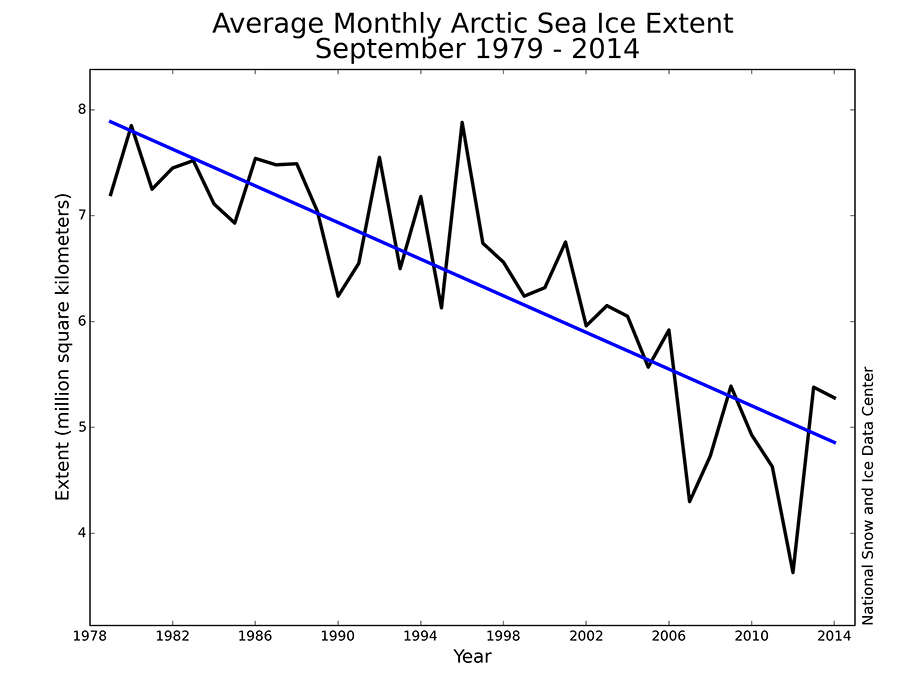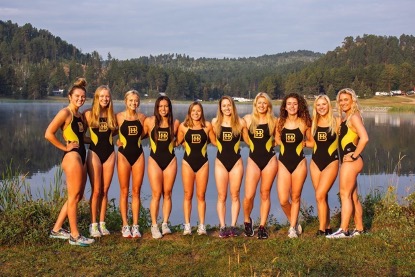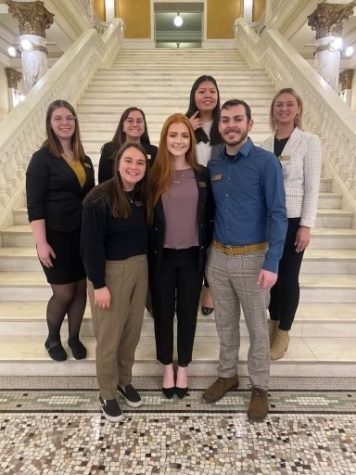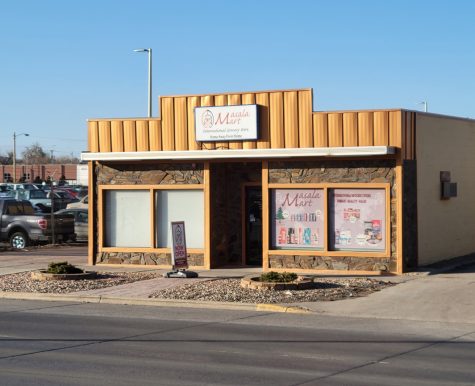Mark Serreze Brings “A Breath of Fresh Air” to Global Warming Debate
On Wednesday, October 28, Dr. Mark Serreze, a research scientist at the University of Colorado National Snow and Ice Data Center — part of the Cooperative Institute for Research in Environmental Sciences — visited the Black Hills State University campus to give a lecture on global warming and melting Arctic ice.
Serreze presented his seminar to the public to create awareness about the science of climate change. He talked about the geopolitics of a melting artic region. There are economic, sovereignty, and commercial shipping issues associated with the melting of the Arctic Ice.
NASA states that Carbon Dioxide emissions are a vital gas for sustaining life on Earth. Carbon Dioxide emissions originate from human causes such as deforestation, and burning fossil fuels as well as natural patterns such as volcanic eruptions. The ten warmest recorded years have occurred since the year 2000, 2014 being the warmest yet. Because of the global temperature increase, it is important to understand the locations where climate change is most dominant.
Climate change is more significant in the Arctic, with ice melting at a factor of two compared to the rest of the globe. While Serreze avoided the debate of human-related causes for global warming, he responded to an audience member question about alternative sources of energy. He stated that nuclear energy may be the safest option. Serreze expressed that humans needed to adapt to climate change in order to slow down human-related causes and carbon dioxide emissions.
According to a study done by the United States Environmental Protection Agency, only 31 percent of carbon emissions are derived from transportation. Serreze made the point that asking all of human kind to get rid of mechanized transportation is simply unrealistic. In order to adapt to a climbing global temperature as the result of human interference, he said we need to search for alternative methods for energy.
Serreze concluded with the statement that the world is in the fast lane for losing Arctic ice if humans don’t make changes soon. Changes need to be focused not on fixing the past, but on innovative ideas for cleaner energy in the future.

















